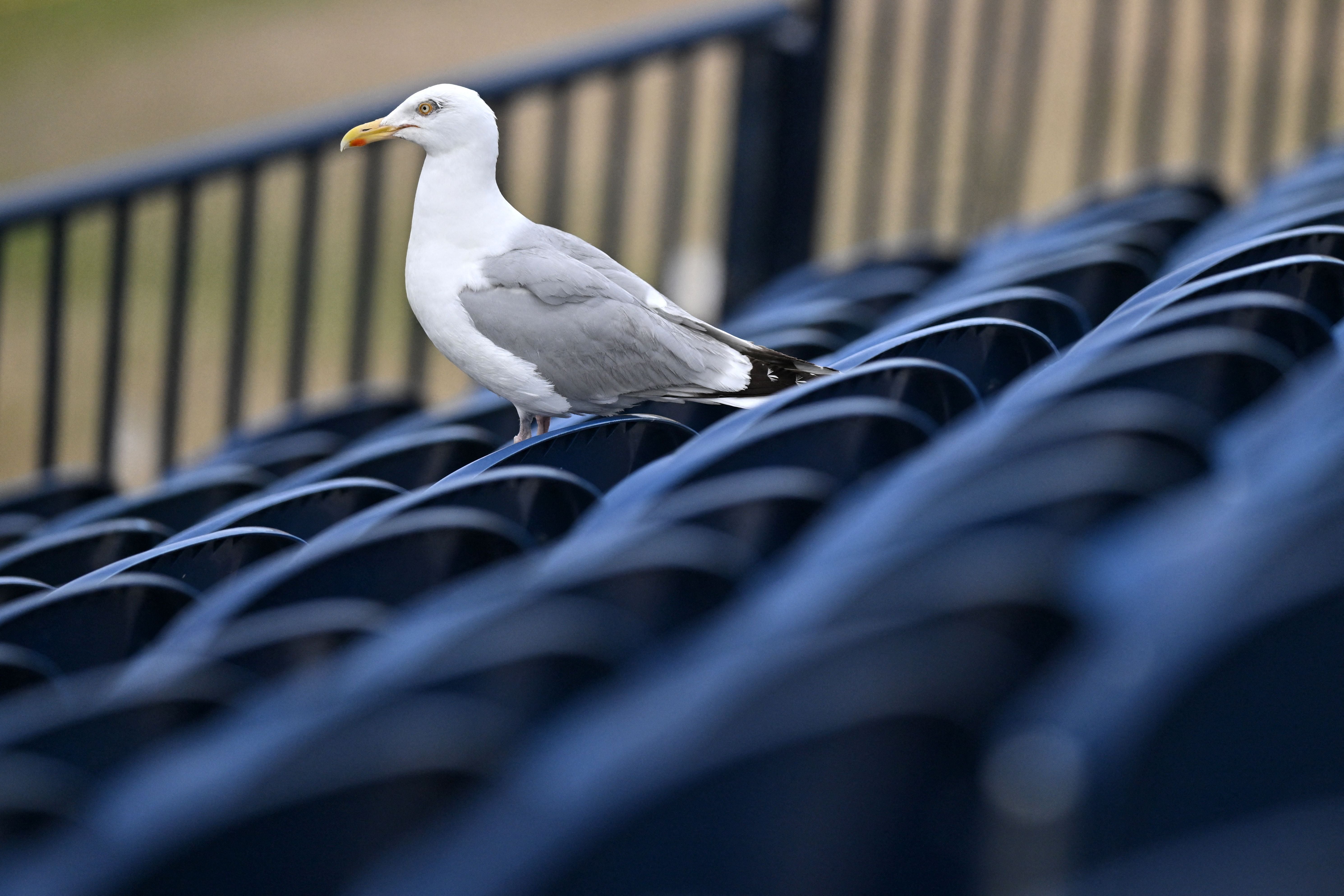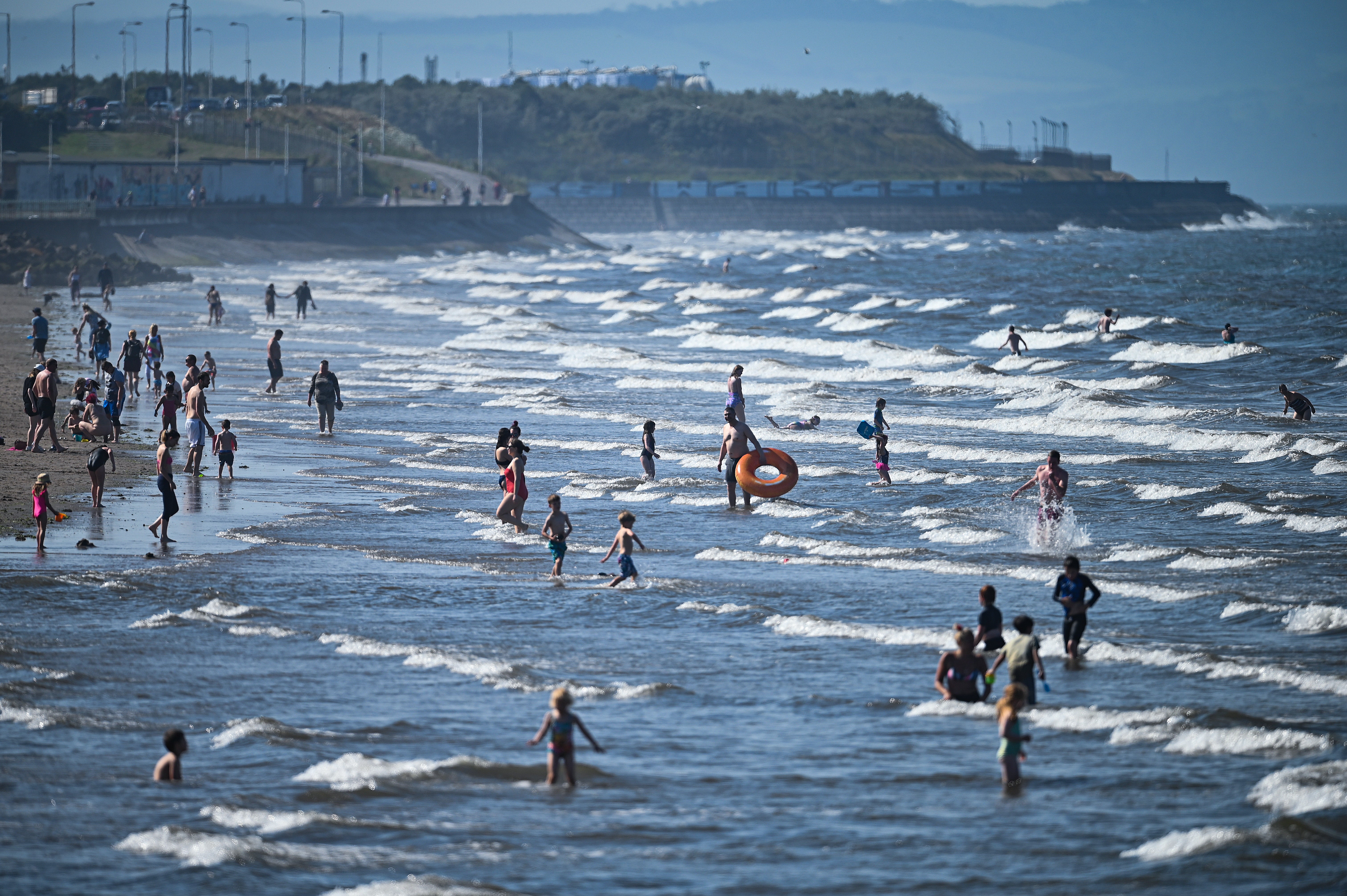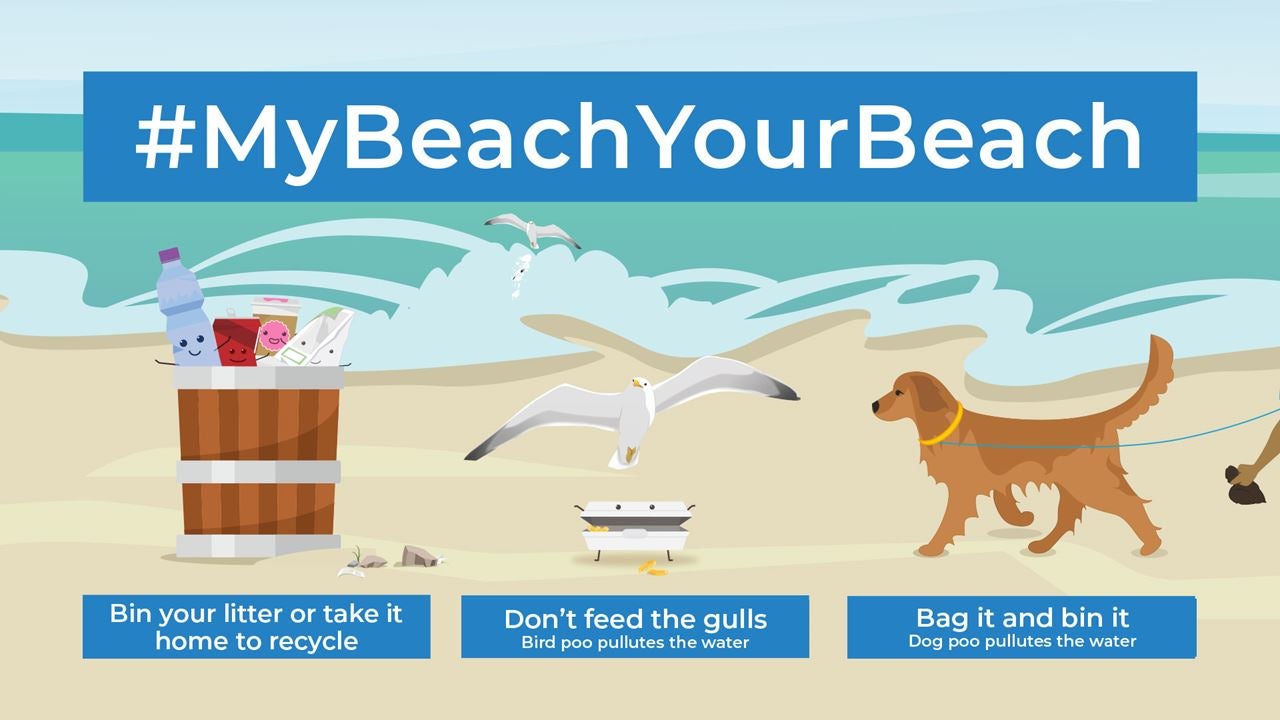Bird experts criticise campaign claiming seagull poo pollutes water
“The notion that seabirds are a driver of marine pollution and poor quality of seawater around our coasts is just plain wrong,” says spokesperson for RSPB Scotland

Bird experts have criticised a government-funded campaign which urges visitors to Scottish beaches not to feed the gulls because bird poo pollutes the water.
The campaign My Beach, Your Beach, which is funded by the Scottish government, aims to improve bathing water quality at Scottish beaches such as Portobello in Edinburgh and Troon in Ayrshire, and had advised visitors that “bird poo has been found to contribute to bathing water contamination”.
While bird experts say it is not recommended to feed gulls because it can encourage the birds to snatch food from others, they said bird droppings were not pollution but important sources of nutrients for phytoplankton, which feeds a variety of marine species, from snails to fish.

“The notion that seabirds are a driver of marine pollution and poor quality of seawater around our coasts is just plain wrong,” said a spokesperson for RSPB Scotland. “The clue is in the name – ‘seabirds’ live by and on the sea, and have done for many thousands of years, playing an essential part in the structure and functioning of the marine ecosystem.
“To demonise them on the basis of something that they do not do or cause is careless.”
Dr Viola Ross-Smith, who has PHD in gulls and now works for the British Trust of Ornithology, told The Independent bird poo was “perfectly natural” and was a well-known fertiliser.
Dr Ross-Smith said there had been studies that have detected salmonella in the poo of some gulls that had foraged around sewage outlets so it was theoretically possible that it could be a public health hazard in the water. But compared to the amount of human sewage, as well as wet wipes and other pollution being pumped into the water, it was negligible, she said.
Dr Ross-Smith said there were somewhere in the order of 250,000 herring gulls - the gulls featured in the campaign - in the UK, compared to a human population of around 67 million.
“They’re not all pooing out at sea all the time and when they are it’s just poo and not wet wipes, it’s a natural process,” she said, adding that creating anxiety around gulls as potential vectors of water pollution was not valid, particularly when compared to human sewage pollution.

Conservationists and bird experts have warned that the numbers of gulls are declining and that the worsening climate crisis and overfishing are reducing their natural food sources.
“Gulls need our help; all the species breeding in the UK are of Conservation Concern with some in very serious trouble,” the spokesperson for RSPB Scotland said.
Keep Scotland Beautiful, a charity which aims to build a clean, green sustainable Scotland and runs the My Beach Your Beach campaign, said its key message was to discourage beach users from attracting gulls by feeding them, and reminding people to put litter in the bin.
“Gull and dog poo have been found to contribute to bathing water contamination and can affect bathing water classifications,” it said.
The campaign is carried out in partnership with the Scottish Environment Protection Agency (SEPA) and South Ayrshire Council, North Ayrshire Council, City of Edinburgh Council, East Lothian Council and Fife Coast & Countryside Trust.
A Scottish Government spokesperson said: “The bacteria that can cause poor water quality at designated bathing waters come from the stomachs of any warm-blooded animals including humans, livestock, gulls, dogs, and other wildfowl. SEPA monitoring has identified that at some bathing waters poor water quality is associated with gull and dog faeces.
The Keep Scotland Beautiful ‘My Beach, Your Beach’ campaign is aimed at behavioural change to improve water quality by “ensuring the impacts from gull and dog faeces are minimised,” it added.
A spokesperson for SEPA said: “Given the distribution of wild birds around our coasts, it is not surprising that we have evidence of bacteria from gulls in the water we sample.
“In most instances this is not of concern, but at some of our more popular beaches encouraging birds by direct feeding or failing to pick up food waste litter can unnaturally increase bird numbers. We want to reduce the potential impact on water quality where people bathe.”
Join our commenting forum
Join thought-provoking conversations, follow other Independent readers and see their replies
Comments
Bookmark popover
Removed from bookmarks